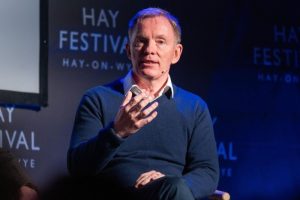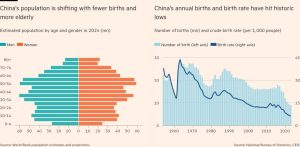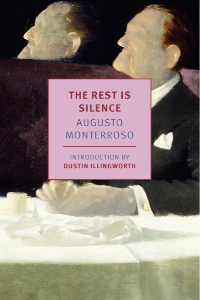Ten years of Free Lunch

Unlock the Editor’s Digest for free
Roula Khalaf, Editor of the FT, selects her favourite stories in this weekly newsletter.
This article is an on-site version of Free Lunch newsletter. Premium subscribers can sign up here to get the newsletter delivered every Thursday and Sunday. Standard subscribers can upgrade to Premium here, or explore all FT newsletters
Greetings to regular Free Lunch readers — and congratulations! Ten years ago this week I wrote the first issue of this column. Since then it has been going out uninterrupted, outside of the odd holiday break. This success owes at least as much to you as to me — your readership is what made Free Lunch possible in the first place and has kept it going for a decade. So here are my heartful thanks — and a whirlwind tour of the archives. Do you have any favourites from the past 10 years? Let me know at [email protected].
A trip down the Free Lunch memory lane
If there are any readers out there who have been signed up from the very start, they will have received 1,098 (!) Free Lunch newsletters — 1,099 with this one. Most of them have been from me, and a couple of dozen from esteemed colleagues who have stood in when I have been away. Thanks to all of them! Thanks, too, to all the unnamed colleagues without whom this column would never get out — from the early brainstormers, product developers, technicians and editorial colleagues, and above all to the superb editors and sub-editors who have saved me from errors more often than I care to admit.
In the early years, Free Lunch was shorter but more frequent, as we started out with five editions a week. Rather than me running out of ideas and suffering a premature death (which is worse?), the frequency scaled down to three times a week after four years, and then to the once-a-week schedule with longer pieces we have today. Longtime readers, which has worked best for you?
It’s a source of immense pleasure that Free Lunch is now read in 212 countries and territories as far-flung as the Faroes, Fiji and São Tomé and Príncipe. (I have a particular soft spot for the last one, which I visited many times while advising on oil revenue management before joining the FT.)
Did I expect in December 2014 that I would still be going strong with Free Lunch after 10 years? No, but then I have never been someone with very precise long-term plans. So I won’t make any predictions about what Free Lunch will look like in another decade. But I do know what will happen to it in the near future. I’m excited to announce that after the end-of-year break, your favourite global economic policy newsletter will double in frequency, bolstered by a regular Sunday edition to be written by my excellent colleague Tej Parikh.
The full archive of Free Lunch is available to subscribers, starting with the earliest here. So indulge in a walk down our very own memory lane.
The very first issue took on the EU’s newfangled fund for boosting investments (plus ça change!), the UK’s immigration debate (ditto), and economists’ self-declared superiority to other social scientists (nuff said). I rather like the headline: “[European Commission president Jean-Claude] Juncker’s Baron von Münchhausen investment fund”. Were Free Lunch headlines funnier in the old days?
I was struck from revisiting that first issue and my dive into the archives by how many of the same themes have kept recurring over the decade. I first looked at the plight of male US workers falling out of the labour force, and the risk of weak aggregate demand, in mid-December 2014. Sanctions on Russia, and how to understand the Russian macroeconomy, first made their appearance three days later. (The last — so far — treatment of that topic was just last month.)
The same week featured my first, but definitely not last, diatribe against central bankers thinking that there was a lower limit to how much they could loosen monetary policy: “The upshot is that the ‘zero lower bound’ is more dogma than fact, and one which has greatly harmed monetary policy in the crisis.” You need not have been a subscriber for a decade to have recognised this stance in Free Lunch over the years.
Depending on your point of view, you will conclude that I have been “consistent” or “repetitive”. But from my point of view as an opinion writer, the recurrence of certain themes highlights how I have benefited from you as an audience to revisit, sharpen and hone my arguments.
Free Lunch was where I first set out how people misunderstand the functioning of the euro, and therefore underestimate the resilience of the single currency. It was also where I developed the arguments for why “Lehman syndrome” led to the catastrophic mistake of not restructuring Greece’s debt in 2010. This thinking turned into a contrarian (at the time) book in defence of the euro, and is a take that I think has held up better than its opponents.
The election of Donald Trump in 2016 and the general rise of political forces opposed to the postwar liberal democratic world order prompted a lot of thinking about how one could win back the “left behind” to the political centre ground. (One idea in this vein I have developed in Free Lunch is my “car wash parable” of how high wages can drive productivity growth and not just the other way round.) This thinking, too, developed into a book.
These ideas — which I first called an “economics of belonging” here in 2018 — were why I supported much of the “Bidenomics” agenda (apart from the tariffs), I think rightly, and why I thought it would in the end carry the day among US voters last November, which was spectacularly wrong. A question for me to dig into in the months ahead is whether the economic prescriptions were misguided, or didn’t go far enough all while the electoral messaging didn’t make enough of Joe Biden’s economic policy choices. (As I suggested here a few weeks ago, “vibeonomics” beat Bidenomics.)
A third rich seam of writing flowed from Brexit — even before the 2016 referendum. I was wrong that the UK would be pushed by economic logic to align more closely with the EU than the hard Brexiters wanted. (I will note that this process has not played itself out yet, however.) But I largely did get the Northern Ireland outcome right. And one of my favourite Free Lunches is this on the “deregulation delusion” from 2016 where I explained why you cannot both want freer trade and less regulatory alignment.
I could mention many more themes — from the future of electric vehicles (first addressed in Free Lunch 2017, with hopelessly low estimates of their growth) to central bankers’ unconvincing attempts at Jedi mind tricks (first mention: 2015). I am particularly proud of the long-term coverage of Ukraine, starting in 2015. On the day of the full-scale invasion, I highlighted how the country was being punished for its turn towards the EU, and since then, Free Lunch has been a go-to place for tracking the debate over what to do with Russia’s central bank reserves — and for tracking the reserves themselves.
Among the most popular pieces on the ft.com website over the years are my case for universal basic income (video here from our “Free Lunch on Film” spin-off, and a text on its affordability here). Other top hitters were my prediction that Kamala Harris would win (oops), a piece on Norway’s exodus of billionaires, one on the European Central Bank as the enemy of the euro, the case for a wealth tax in the UK, and several on energy prices and on China.
I’ll leave it to you to judge whether the popularity of contrarian analysis says something about Free Lunch readers. What I can say about Free Lunch readers is that writing for such an illustrious, knowledgeable audience — which includes many experts and decision makers who will vehemently disagree with what I have to say — is a humbling but extremely rewarding affair. You have been keeping me on my toes for a decade, and constantly giving me the opportunity to keep learning. For that I thank you.
Other readables
Recommended newsletters for you
Chris Giles on Central Banks — Your essential guide to money, interest rates, inflation and what central banks are thinking. Sign up here
India Business Briefing — The Indian professional’s must-read on business and policy in the world’s fastest-growing economy. Sign up here
#Ten #years #Free #Lunch





